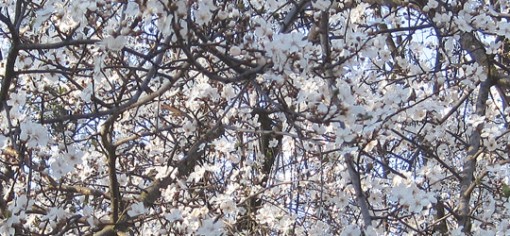
There is a crisis that looms over the next century like a dark cloud of diesel exhaust and an adjunct professor at Yuba College feels driven to share his wisdom on the subject with students as a means to avert it.
Geography Professor Marius Petraru agreed to meet with the Prospector one afternoon, not so much to be interviewed but to describe in an animated and near lecture style the menace that is global warming.
According to Petraru and a text that he shared with us called Dire Predictions: Understanding Global Warming -the effects of a century of industrial expansion has severely altered the earth’s climate and this will have serious implications – matters that Yuba students should be aware of.
Petraru has gathered much of his knowledge on climate change from different sources including Dire Predictions. Compiled by the Intergovernmental Panel on Climate Change (IPCC) established in 1988 with the goal of investigating the causes of climate change. It claims to be Bi-Partisan and is so eco-conscious that it’s even printed on “mixed source paper from well managed forests.”
The aim of Dire Predictions is to bring the lay-reader up to speed on the causes of climate change with graphics and photos that simplify a deluge of complex statistical data.
The rise of temperature is related to the greenhouse gas effect when excess carbon dioxide (CO2) released from natural and human activities begins reflecting heat back onto the planet’s surface, melting polar ice caps add more water into the ocean that may eventually overtake coastal areas by 2040, Petraru said.
Heat will encroach on areas previously safe from melting and at unprecedented speeds. This has already raised the level of the ocean at a rate of 1 degree a year according to measurements made from 1950 to today, Petraru said. This January was the 19th highest on record, according to the National Oceanic and Atmospheric Administration (NOAA.)
A significant problem that concerns Petraru is desertification, what happens in dry land areas that humans inhabit and rely on for agriculture. When these areas are pushed past the limits of productivity, biodiversity is threatened and the ability of the soil to be used season after season is diminished by aridification. Aridification is the process of drying the land forcing humans to migrate often into slums.
And in the oceans a similar process of acidification has affected some coral reefs turning the ecosystems that depend on them into dead zones.
The predictions are in fact dire but the authors provide solutions as well.
None of them are easy by any stretch and involve dramatically eliminating the amounts of carbon dioxide in the atmosphere by either reducing the sources or a removal process called Carbon Capture and Storage (CCS) a process of sequestration that captures CO2 in aquifers to offset the damage.
Many of the online resources that Petraru offered acknowledge that the earth has undergone catastrophic climate changes in the past that weren’t caused by human activity, nevertheless a majority of scientists from NOAA to NASA have formed a quorum and agree that we are in the midst of a serious climate crisis today.
The scientific method used by the authors of Dire Predictions and numerous other climate scientists is notoriously slow to come to consensus instead -building upon facts and perceived phenomena to present the most persuasive theory possible. That these rigid requirements have yet to support a counter argument in equally large numbers corroborates a troubling view of a damaged globe spinning towards an inevitable disaster.
For further reading, check out:
The Climate Reality Project
http://climaterealityproject.org/
China Mike
http://www.china-mike.com/facts-about-china/facts-pollution-environment-energy/
Update 10/15/12):
PLEASE PROVIDE ATTRIBUTION TO CARINSURANCE.ORG WITH THIS CONTENT 
Editor’s Note: This is the first installment in a series of Climate Change stories the Prospector will publish that will attempt to convey the debate by profiling professors and students on where they stand on the issue.
A version of this article first appeared in the Spring 2012 print edition of The Prospector. It has been edited for the web.
Jake Shafer has lived in the Yuba-Sutter area for five years. He is currently working towards a Natural Science degree at Yuba College. He enjoys writing and editing and being on the Prospector staff this semester.
Comment Policy: Comments are welcomed and encouraged. However, the editorial board reserves the right to edit or delete, without notice, any comments submitted to the blog. For more details, see our full Comment Policy.